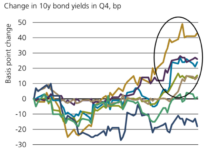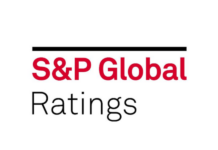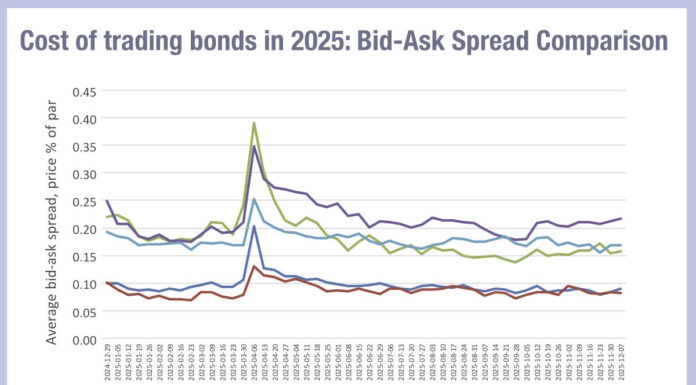Trump’s long-dreaded and much-amended tariffs increased the US tariff rate to more than 18% this month – up more than eightfold on 2024’s levels. The country has seen its growth rate slip to below-trend levels, and the aggregate effective rate is at near-record levels for the last century.
More broadly, trade, immigration and governmental cost-saving policies are adding downside risk to the US economy, S&P Global Ratings warns, asserting that the 3% real GDP growth reported in Q2 makes the economy look stronger than it is.
US corporates could pull back on spending in this landscape, the agency says. Combined with tighter margin and earnings pressures, this could impact credit quality.
It stated, “Tariffs remain a top concern for many corporate borrowers we rate, given the levies are lifting input prices when companies are dealing with already-elevated costs and a finite ability to pass them through to inflation-weary customers and consumers.”
Since the tariffs were first announced on 2 April, the agency has downgraded 11 corporate credit ratings, placed four on CreditWatch with negative implications, and revised the outlooks of 18 to negative. Four of this last group were also downgraded.
“In our June Credit Conditions Committee report looking ahead to the third quarter, we tagged tariffs and trade tensions – and the potential effects on borrower profitability and credit quality – as our top risk, with a level of “very high,” meaning that we have factored this risk into our base case ratings assumptions,” the agency said.
However, there is some light at the end of the tunnel.
S&P Global has also found that corporate sentiment is beginning to improve as the tariff picture becomes clearer. After poor sentiments in Q1 earnings calls, Q2 saw a turnaround almost globally, its analysis found.
“The worst-case outcomes were avoided (for now, at least) and sentiment was most positive in North America,” it said.
The impact of tariffs on companies is individualised, and the firm notes that ongoing negotiations and a lack of details make it difficult to gauge their consequences with certainty.
Also uncertain is how other global players will react – countermeasures and retaliations will harm US firms working in and with foreign markets and producers.
S&P Global states that the influence of the tariffs on goods prices will be delayed, but warns that inflation could soon be on the rise.
The Labor Department has already reported a 0.9% increase in the producer price index between June and July, significantly exceeding the 0.2% rise forecasted. According to the US Bureau of Labor Statistics, the consumer price index was up 0.2% in July (seasonally adjusted).
©Markets Media Europe 2025












